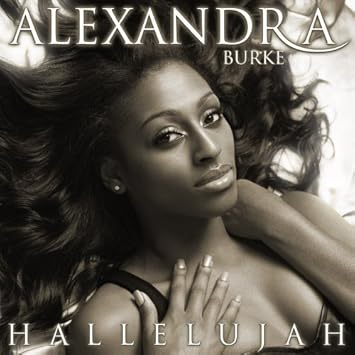|
| HallelujahLeonard Cohen |
Writer(s): Leonard Cohen (see lyrics here) Released: December 11, 1984 (album cut) First Charted: December 27, 2008 Peak: 59 US, 36 UK, 17 CN, 59 AU (Click for codes to charts.) Sales (in millions): 0.2 UK Airplay/Streaming (in millions): -- radio, 269.65 video, 129.26 streaming |
|
| HallelujahJeff Buckley |
Released: August 23, 1994 (album cut) First Charted: December 20, 2008 Peak: 2 UK, 70 AU, 1 DF (Click for codes to charts.) Sales (in millions): 2.0 US, 0.6 UK, 3.23 world (includes US + UK) Airplay/Streaming (in millions): -- radio, 293.24 video, 356.38 streaming |
 | HallelujahAlexandra Burke |
Released: December 17, 2008 First Charted: December 27, 2008 Peak: 13 UK, 53 AU (Click for codes to charts.) Sales (in millions): 1.38 UK Airplay/Streaming (in millions): -- radio, 201.88 video, 103.30 streaming |
Awards (Leonard Cohen):Click on award for more details. Awards (Jeff Buckley):Awards (Alexandra Burke):Click on award for more details. |
About the Song:Malcolm Gladwell does a podcast on, as he says, “What happens when genius takes its sweet time to emerge?” RH He mentions economist David Galenson’s theory of creativity which divides art into conceptual innovation, marked by artists who work quickly and have immediate impact, and experimental innovation, in which artists don’t necessarily know what they’re trying to say right away and their influence takes time. RH Gladwell holds up Leonard Cohen’s “Hallelujah,” a song “about a love that has soured and gone stale,” SF as a quintessential example of experimental innovation. Rock critic Alan Light wrote an entire book about the song and said Cohen wrote 50 to 70 verses for the song, working on it for five years. RH It finally emerged on his 1984 album Various Positions and was released in Spain and the Netherlands as a single, SF but it “barely makes a ripple…If you go back to listen to that first ‘Hallelujah,’ the song’s failure makes sense. It’s not there yet.” RH Michael Bartel calls the original version “so hyper-serious that it’s almost satire.” RH Cohen continued tweaking the song live and John Cale, known from the Velvet Underground, saw him perform it and requested the lyrics. Cohen responded with 15 faxed pages. Cale recorded it for the 1991 Leonard Cohen tribute album I’m Your Fan and, according to Light, “cracks the code of ‘Hallelujah.’” RH Cale’s recorded version included lyrics like “I used to live alone before I knew you” and “All I ever learned from love was how to shoot at someone who outdrew you” which Cohen had only performed live. WK It’s Cale’s version that Jeff Buckley heard and decides to record. Gladwell called it the “definitive one…a cover of John Cale’s cover…only with Cale’s piano swapped out for a guitar.” RH He said “every subsequent cover – and there have been hundreds – are really covers of Buckley covering Cale covering Cohen.” RH Buckley recorded it for Grace, his only studio album released before his death in 1997. That album achieved gold status in the U.S. in 2002, but the song didn’t even chart until 2006, reaching #7 in Norway. The next year it reached the top 3 in Sweden. In March of 2008 it topped the Billboard digital song chart after Jason Castro performed the song on American Idol. In 2017, The International Observer named Buckley’s version the greatest song of all time. WK Time magazine quoted Buckley’s publisher as saying of the song that it “can be joyous or bittersweet, depending on what part of it you use.” WK The song surfaced again in the 2001 film Shrek. Rufus Wainwright recorded the song as a tribute to Buckley. It was used on the soundtrack and reached #97 on the UK charts. However, it was Cale’s version which was actually used in the film. There were also successful chart versions by k.d. lang, Justin Timberlake, and Alexandra Burke. Lang first recorded “Hallelujah” in 2004, but it was her 2010 version performed at the Vancouver Winter Olympics in 2010 which gave her chart success, reaching #2 in Canada. That same year, Justin Timberlake reached #13 on the U.S. charts with his duet version with Matt Morris. Alexandra Burke won the fifth series television talent competition The X Factor in England and her recording of “Hallelujah” became the top-selling song of 2008, reaching #1 in the UK and selling more than a million copies. It set the European record for most singles sold in a 24-hour period. WK Buckley’s version was given a major boost as a result; it reached #2 in the UK (behind Burke’s version) and #1 in France.
Resources:
Related Links:First posted 9/18/2021; last updated 5/2/2024. |








No comments:
Post a Comment